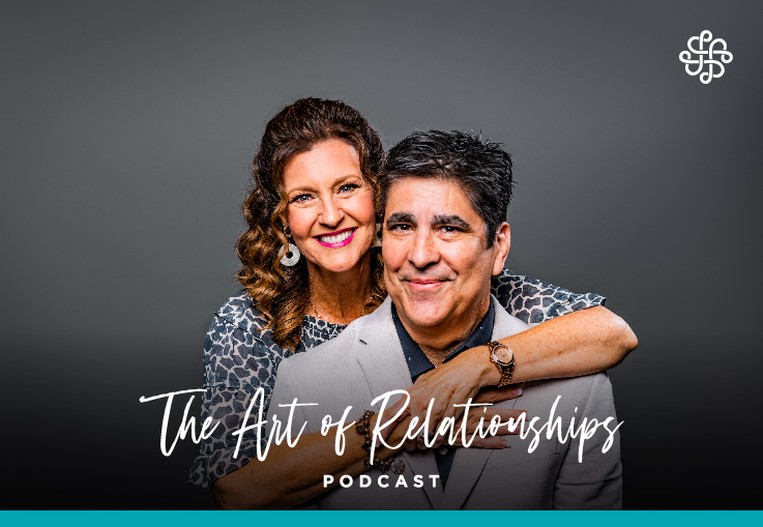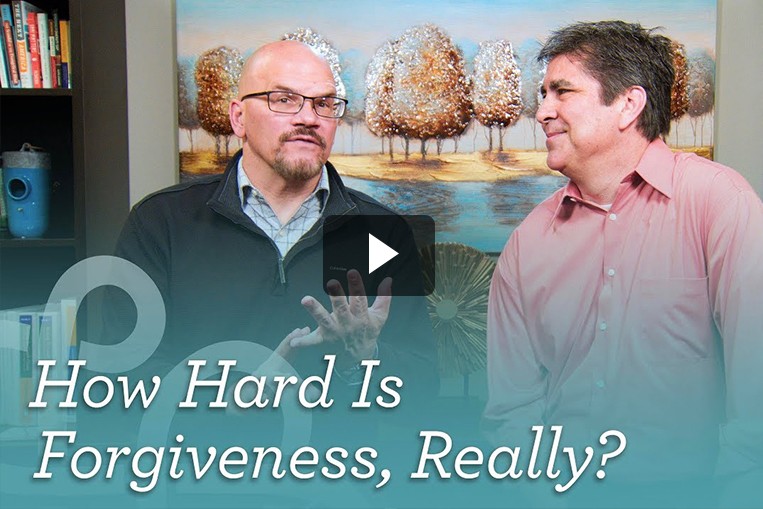Life For Your Marriage After An Affair pt.I
Paul Friesen - February 27, 2018
Topic: Communication, Gratitude, Relationships

Affairs, whether physical or emotional, are a really bad idea, so please take every precaution not to have one. Fortunately, affairs do not need to end a marriage. If genuine repentance and restoration driven by forgiveness and grace are experienced, there is no reason the marriage cannot survive and even thrive. Here are 8 important truths on the road to reconciliation.
1. Establish Responsibility
When a couple comes in for counseling post-affair, (and let’s say for the ease of writing this article, that the man has had the affair, although married women are having more and more affairs), we begin by hearing their story. After we’ve heard from both of them, we ask the betrayed spouse, “What percentage of fault do you own for your husband’s infidelity?” We have gotten answers such as: “Probably 30% (or 40% or 50%) because I was a nag” or “because we didn’t have sex regularly” or “because I focused on the children over him.” We then ask the same question of the husband, who sometimes agrees with her assessment. Fortunately, some boldly and accurately accept that the responsibility is entirely his. We affirm that the infidel is 100% responsible for the choices he made to betray his marriage covenant. We reinforce this to his wife because it is critically important to the process of restoration for this foundational truth to be established. We repeat: “Your husband is 100% responsible for the affair. You have no responsibility at all. Do you hear us? Do you believe us?” It is critical that she embraces this truth because if she takes any responsibility for his choices, she will have to live the rest of her marriage fearful of repeated infidelity if she is not kind enough, pretty enough, sexy enough, focused enough, etc.
"Do you hear us? Do you believe us?" It is critical that she embraces this truth because if she takes any responsibility for his choices, she will have to live the rest of her marriage fearful of repeated infidelity if she is not kind enough, pretty enough...
After we establish this with clarity, we do acknowledge that marriage issues are multi-faceted. We say something like “We are aware that there are areas in your marriage that need to be addressed as they contribute to dysfunction in your marriage, but please don’t confuse areas of growth with a rationale for betraying the covenant.” If the infidel is unwilling to take full responsibility for their actions, there is little hope of restoration and reconciliation.
2. Cut off ALL connection with the person you have had the affair with – ALL.
We have heard it all “Can’t we just be friends?” “I am concerned how ending our relationship so abruptly will hurt them.” “I just need to meet with her one more time to bring closure.” “Just one call to explain why we need to end this.” The only communication needed is one final email, letter, or call with your spouse present, in which you simply say, “I was wrong to enter into a relationship with you. It was sinful and destructive to my marriage, family, and relationship with God. From this point forward, I will not answer any email, text, or call from you. I will inform my spouse of any attempts you make to contact me or if by chance I see you. Again, I am very sorry I entered into this relationship with you and take full responsibility for it.” From that point forward, any communication or attempt to communicate must be shared with the injured spouse. There can be NOTHING hidden. Secret-keeping, denial, hiding, and covering up are all undermining to restoration. Change your phone number, your email, get off of social media…all of these steps will validate that the unfaithful partner will go to whatever lengths necessary to live out repentance.
There can be NOTHING hidden. Secret-keeping, denial, hiding, and covering up are all undermining to restoration.
3. Share the whole truth with your spouse about your involvement.
You don’t need to go into every detail, but you do need to answer any question she has. What did you do with her? Where did you meet? How long did the liaison go on? NO SECRETS! No minimization. No glossing over. No “but if I tell her this, it will hurt more.” The damage has been done. Owning it doesn’t make it worse. It just brings the deeds done in the dark into the light so they can be gutted of their power to control and do more damage. It is far better to have complete honesty and disclosure than “trickle down honesty” that continues to undermine rebuilding trust.
4. Do not be defensive when she asks questions.
They may seem to be annoying, such as “Where are you?” “Who are you talking to?” “Why did you do this to our family?” “Why are you late?” “Why didn’t you answer my call?” “Why are you keeping your phone in your pocket?” but you need to answer her. Without annoyance. Without sighs. Without body language that communicates irritation. Without defensiveness. If you are truly repentant, the fruit will be shown 24/7. Regaining trust takes time, and the time schedule is hers, not yours, especially in the early months following an affair. The person leaving the affair has often been struggling with this for a period of time and wants to move on. For her though, it is “new news” that just imploded her world. She will need some time to be convinced that he is truly repentant before she decides to stay in the relationship. Being defensive expresses a lack of repentance.
Each of these things can be seen as small steps on a road that has a healthy marriage as the goal at the end of it. The second half of this article by Dr. Friesen will continue in two weeks. Stay tuned to read the rest and let us know your thoughts!

Paul Friesen
Dr. Paul Friesen and his wife, Virginia, are the co-founders of Home Improvement Ministries (www.HIMweb.org), a non-profit organization dedicated to equipping individuals and churches to better encourage marriages and families in living out God’s design for healthy relationships. Together they regularly speak at marriage, men’s, and women’s conferences across the country, as well as family and parenting seminars.
Paul has a doctorate in Marriage and Family Therapy and a master’s degree in Family Ministry, both from Gordon-Conwell Theological Seminary. He has also authored and co-authored over ten books and curriculums on parenting and marriage, including "Letters to My Daughters," "In Our Image," "So You Want to Marry My Daughter," "Before You Save the Date," "The Marriage App," and most recently, "Lovin Your Wife Like Christ When You Ain't No Jesus".
Paul and Virginia have been married since 1976 and live in the greater Boston area. They are the proud parents of three young adult women, two of whom are now married to wonderful, Godly men.

 Before Things Go From Bad To Worse
Before Things Go From Bad To Worse
 How Hard Is Forgiveness, Really?
How Hard Is Forgiveness, Really?
 Parenthood: Surviving the First Six Weeks
Parenthood: Surviving the First Six Weeks
 Valentine's Day...in July?
Valentine's Day...in July?